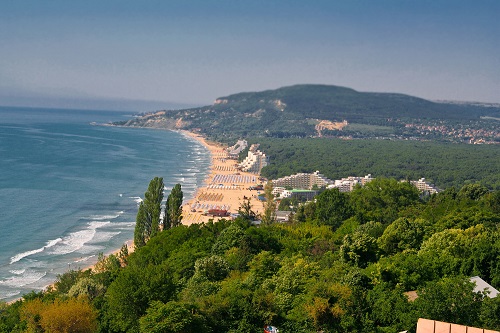If you have skills that are in demand in Bulgaria, then you will be welcome as a worker. Sofia in particular has a strong expat presence. This is because skilled Bulgarians tend to go abroad to seek wages commensurate with their skills, leaving a hole that is filled by skilled expats, who are content to earn less than they might in other countries, but live well thanks to Bulgaria’s low prices.See the visas section for information on entering, staying in and working in the country.
The National Employment Agency can provide advice on job seeking and hiring, and lets you apply for vacancies listed in government job centres.
Tax And Social Insurance
There is a flat rate of 10% income tax and 13% social security contributions (pension, health, unemployment etc.), deducted at source. Employers also make a contribution. You will need a social security number to make these payments, but your employer will usually take care of getting one for you. Although you pay in from day one, eligibility for social security benefits doesn’t begin until you have completed six months’ full-time employment.
Your health payment contributions will go to a private health insurance scheme. It is your responsibility to understand exactly what your package provides, and to add anything else you think necessary, e.g. dental care.
If you are self-employed, you should note that a business is expected to pay a minimum wage to its owners as well as its staff. In 2017, owners were expected to be paid at least BGN 460 (£198) per month.
Pensions
The state pension is currently around BGN 150 per month, for someone who has worked a full 40 years in Bulgaria. A private pension is highly recommended.
Are any skills in particular demand?
Bulgaria has a general shortfall of skilled workers, but the fields of IT and Engineering are particularly in demand.
Do I need to speak the local language?
You will be expected to understand Bulgarian well enough to work at the skill level for which you were hired. Non-native speakers will almost always be asked to complete both an oral and written language test. The Bulgarian alphabet is based on Cyrillic, so this must also be mastered.
If you are able to speak more than one language, this could be extremely advantageous in finding a job, especially if you are looking for a role that involves interacting with non-Bulgarians. For example, if you want to work in customer support and you speak a Scandinavian language, or one of the less well represented European languages (e.g. Dutch,) then you have a good chance of getting a well-paid job.
Typical working hours and annual holiday entitlement
Bulgaria has a definitive Labour Code that lays down a range of rights in black and white.
Working days are fixed at eight hours, and working weeks at 40 hours. Extended working time is allowed by prior arrangement, and is usually compensated for by time off in lieu.
Paid annual leave, once you have been with one employer for eight months, cannot be less than 20 working days.

Cost of living
Bulgarian wages are not high, even in Sofia. The average monthly net salary is BGN 1,082, which is around £470. A typical expat salary is around BGN 1,960.
There are plenty of empty apartments in Sofia, so finding a cheap one to rent is not hard.
A one-bedroom city centre apartment averages BGN 524 in rent per month. Further out from the city centre, a one-bedroom apartment averages BGN 399 per month. A three-bedroom city centre apartment averages BGN 955 per month, but further out drops to BGN 662 per month. Basic monthly utilities – electricity, heating, air con, water and garbage – for an 85m2 apartment average BGN 168 per month, and a monthly internet connection averages BGN 20.
These figures are taken from Numbeo.
Job Sites
The following websites are useful for job seekers:
• Career Jet
• Careers in Bulgaria
• ECON.bg (for the economics field) (Bulgarian)
• EURAXESS (for international researchers looking for research careers in Europe)
• EURES (an EU job portal)
• Job Tiger
• Jobs Agents
• Jobs.bg
• Karieri
• Learn 4 Good (mostly teaching opportunities but it covers other areas)
• LinkedIn
• Synectica HR Management
There are also a number of newspapers you can read:
• 24 Chasa (Bulgarian)
• Dnevnik (Bulgarian)
• Monitor (Bulgarian)
• Novinar (Bulgarian)
• Novinite.com
• Standart
• Trud (Bulgarian)
Recruitment Agencies
A lot of people use recruitment agencies, which often specialise in particular fields. Large companies will also use head-hunting agencies to recruit professionals and high-level staff. To find an agency, search for ‘employment agencies’ in the Yellow Pages.
Angloinfo lists international recruitment agencies with branches in Bulgaria.
Direct Applications
Most jobs are not advertised and most positions are filled through personal contacts. Therefore there is no problem with direct applications.
Job Fairs
• American University in Bulgaria (hosts job fairs occasionally)
• Bulgarian Careers Fair (Bulgarian)
• Expomedics (medical)
• LinkedIn

CVs/Resumes
Apply for jobs with a covering letter and CV, written in Bulgarian. This is your first chance to impress potential employers with your linguistic skills. Punctuation and grammar are extremely important.
Your covering letter, which preferably should not exceed one page of A4, should have four sections, as follows:
• Header – this should include both you and your recipient’s address, as well as the date. Where possible, try to address your letter to a named individual
• Introduction – state briefly the position you are applying for and how you found out about it, then summarise in one sentence why you are the best candidate for the role
• Body – go into more detail, highlighting how your skills and experience make you the perfect match for the role . If you can meet a specific need, mention it here
• Closing – show what you expect to happen next, e.g. ‘I look forward to speaking with you,’ then sign off with ‘Sincerely’ followed by your signature
Your CV should not be more than 2 pages, and should include:
• Your personal and contact information, including your name, phone number, address and email, as well as a passport photo
• The position that you are applying for
• Professional experience – for each previous role, include your title, the name of the company, the relevant dates, and a brief description of your responsibilities and accomplishments
• Education – give a basic list of your qualifications, but expand on anything that is relevant to the position you are applying for
• Certificates and diplomas – include anything that is relevant to the position
• Languages – this is very important, so make sure you list the languages you can speak and/or write, as well as whether you are advanced, intermediate or a beginner
• Computer skills – this section should include any relevant programs, applications or internet experience
• Interests – briefly mention your personal interests, which could include your hobbies, sports or activities. Make sure you expand on any that are relevant to the position
• References – unless they are specifically asked for, say that these are available on request
Job interviews may take up to an entire day. Sometimes, they will be in the form of a series of meetings, in which case the longer they go on, the better a sign it is that you have not yet disqualified yourself. Prepare in advance any relevant certificates, evidence of work experience and references.
Employers are not allowed to record interviews, but candidates are.
Bulgaria allows equal opportunities for men and women, and provides legal protection against discrimination on the basis of race, gender, religion, age, sexual orientation or disability. Therefore, you cannot be asked anything that infringes on those topics.
Qualifications And Training
Experience is the most important thing. It does not need to be translated into a Bulgarian equivalent. Bring your certificates to the interview.

